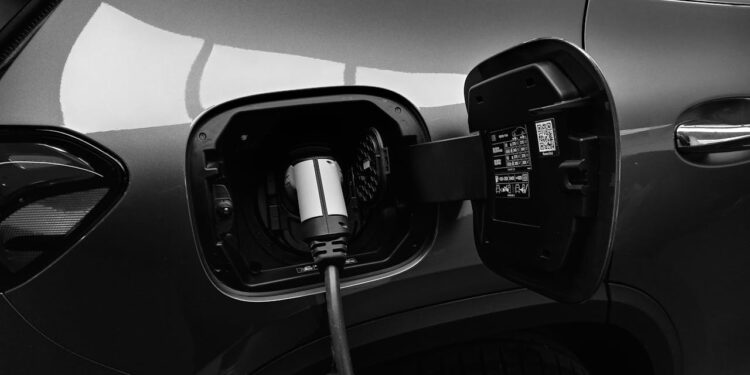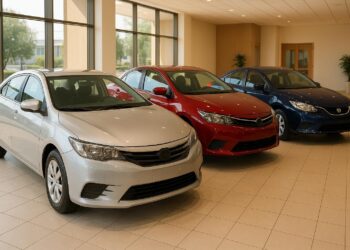Electric vehicles (EVs) are no longer reserved for the ultra-modern cities of the West. Right here in Kenya, the electric car revolution is quietly picking up speed. As fuel prices rise and environmental concerns become more urgent, more Kenyan drivers are considering electric cars as an alternative to traditional petrol or diesel-powered vehicles.
But is an EV the right fit for your lifestyle, driving habits, and location? In this guide, we explore the real pros and cons of owning an electric car in Kenya, helping you make an informed, practical decision.
Whether you’re a Nairobi commuter, a car enthusiast in Mombasa, or looking to reduce your carbon footprint in Kisumu, this article is for you.
The Rise of Electric Mobility in Kenya
Kenya’s shift toward greener mobility is supported by a mix of innovation, investment, and policy. According to the Ministry of Transport, the number of registered EVs in the country has steadily grown over the last five years, with more models entering the market and startups like BasiGo, Roam, and Opibus pushing electric buses and motorcycles designed for Kenyan roads.
Additionally, Kenya’s energy mix—dominated by clean sources like geothermal, wind, and hydro—makes EVs even more appealing. Charging your electric car in Kenya means you’re using one of Africa’s greenest power grids.
The government has also introduced incentives such as reduced import duties, lower registration fees, and VAT exemptions to encourage more EV purchases.
Want to stay updated on electric vehicle trends in Kenya? Visit https://automag.co.ke/ for expert car reviews, auto news, and tips tailored for Kenyan drivers.
Pros of Owning an Electric Car in Kenya
1. Significantly Lower Fuel Costs
One of the most attractive benefits of owning an electric car is how much you’ll save on fuel. Petrol prices in Kenya frequently fluctuate, sometimes hitting Ksh 200 per litre or more. In contrast, fully charging an EV costs a fraction of that—especially if you take advantage of Kenya Power’s Time-of-Use (ToU) off-peak electricity rates.
Tip: Set up a home charging station and schedule charging at night to save more on electricity.
Related: Read more about smart car care habits that save money in the long run.
2. Lower Maintenance Costs
Unlike traditional combustion engines, electric cars don’t have oil filters, spark plugs, or timing belts. Fewer moving parts mean fewer breakdowns and cheaper servicing. For instance, a Nissan Leaf owner might only need to replace brake pads and rotate tires regularly.
Practical Advice: Schedule periodic checks on your EV battery health and brake fluid levels to keep your car running efficiently.
3. Eco-Friendly and Future-Proof
EVs emit zero tailpipe emissions, contributing to better air quality in urban areas like Nairobi, where pollution is a growing concern. If you care about climate change or simply want to leave a smaller carbon footprint, driving an electric car is a step in the right direction.
Internal Link: Explore how EVs can contribute to cleaner cities in Kenya.
4. Improved Driving Experience
Most electric cars offer instant torque, meaning quick acceleration and smoother driving. EVs also operate almost silently, reducing noise pollution on our roads.
Bonus Tip: If you’re commuting in stop-and-go traffic daily, the smooth acceleration of an EV will give you a more comfortable ride, especially in Nairobi’s CBD or along Thika Road.
5. Government Support and Incentives
To promote electric mobility, the Kenyan government has introduced various incentives:
- 10% excise duty (compared to 25% for petrol cars)
- VAT exemptions for EVs
- Reduced customs duty for fully electric vehicles
Over time, these policies make EVs more accessible to the average Kenyan buyer.
Cons of Owning an Electric Car in Kenya
1. Limited Charging Infrastructure
Although companies like EVChaja, BasiGo, and KenGen are building charging stations, public EV charging remains limited to major towns like Nairobi, Nakuru, and Mombasa. If you live in rural areas or frequently travel upcountry, this could be a major inconvenience.
Suggestion: Invest in a solar-assisted home charging system if you live off-grid or experience frequent power outages.
2. High Initial Purchase Price
The upfront cost of electric cars is still relatively high. Popular models like the Hyundai Kona Electric, Nissan Leaf, and BMW i3 can cost anywhere from Ksh 1.5 million to over Ksh 4 million—even for used imports.
However, if you’re open to second-hand options, you can find quality used EVs on local car marketplaces. For instance, https://auto24.co.ke/ often lists pre-owned Nissan Leafs and other budget-friendly EVs ideal for urban drivers.
Looking for affordable used cars or EVs in Kenya? Check out listings on AUTO24 here and compare prices across various electric and hybrid models.
3. Limited Model Selection and Spare Parts
Unlike fuel-powered vehicles, EVs have fewer models available in the Kenyan market. Moreover, since most are imported from Japan or Europe, sourcing parts—especially batteries or onboard computers—can be a challenge.
Tip: When buying an EV, go for more popular models like the Nissan Leaf or Toyota Prius Hybrid—they’re easier to service locally and parts are more readily available.
Internal Link: See our top picks for used electric cars you can buy in Kenya.
4. Range Anxiety
The average EV in Kenya has a driving range of 150 to 300 km on a full charge. This might be enough for daily commutes in Nairobi or Kisumu, but long trips—like Nairobi to Eldoret or Mombasa—require careful planning.
Planning Tip: Apps like PlugShare or Google Maps can help you locate charging points. Always have a backup plan when traveling upcountry.
5. Electricity Reliability
While Kenya’s electricity grid is improving, occasional blackouts can still disrupt charging schedules. For heavy users or businesses relying on EV fleets, this could be a real concern.
Pro Tip: Combine your EV with a backup power source like a solar battery or inverter system to avoid being caught off guard.
Who Should Consider Buying an Electric Car in Kenya?
You should consider buying an EV if:
- You live in or near Nairobi, Mombasa, Kisumu, or Nakuru
- You drive less than 200 km per day
- You have access to reliable power and a secure place to install a charger
- You’re environmentally conscious and want to cut fuel costs
Who Might Want to Wait?
An EV may not be ideal yet if:
- You frequently drive long distances upcountry
- You live in an area with unreliable electricity
- You’re on a tight budget and can’t afford high upfront costs
In such cases, consider fuel-efficient hybrids or used petrol vehicles under Ksh 1 million. Read our latest guide on affordable used cars in Kenya.
Final Thoughts
Electric cars are a smart, future-focused option for Kenyan drivers, especially urban dwellers. As infrastructure improves and prices drop, EV ownership is becoming more realistic for the average Kenyan.
Before buying, weigh the pros and cons carefully and consider your lifestyle, location, and driving needs. If you’re ready to take the leap, start by checking out EV options on trusted platforms like https://auto24.co.ke/ and stay updated with the latest trends at https://automag.co.ke/.
Looking to maintain your EV or learn more about charging tips? Explore our EV maintenance guide here.




